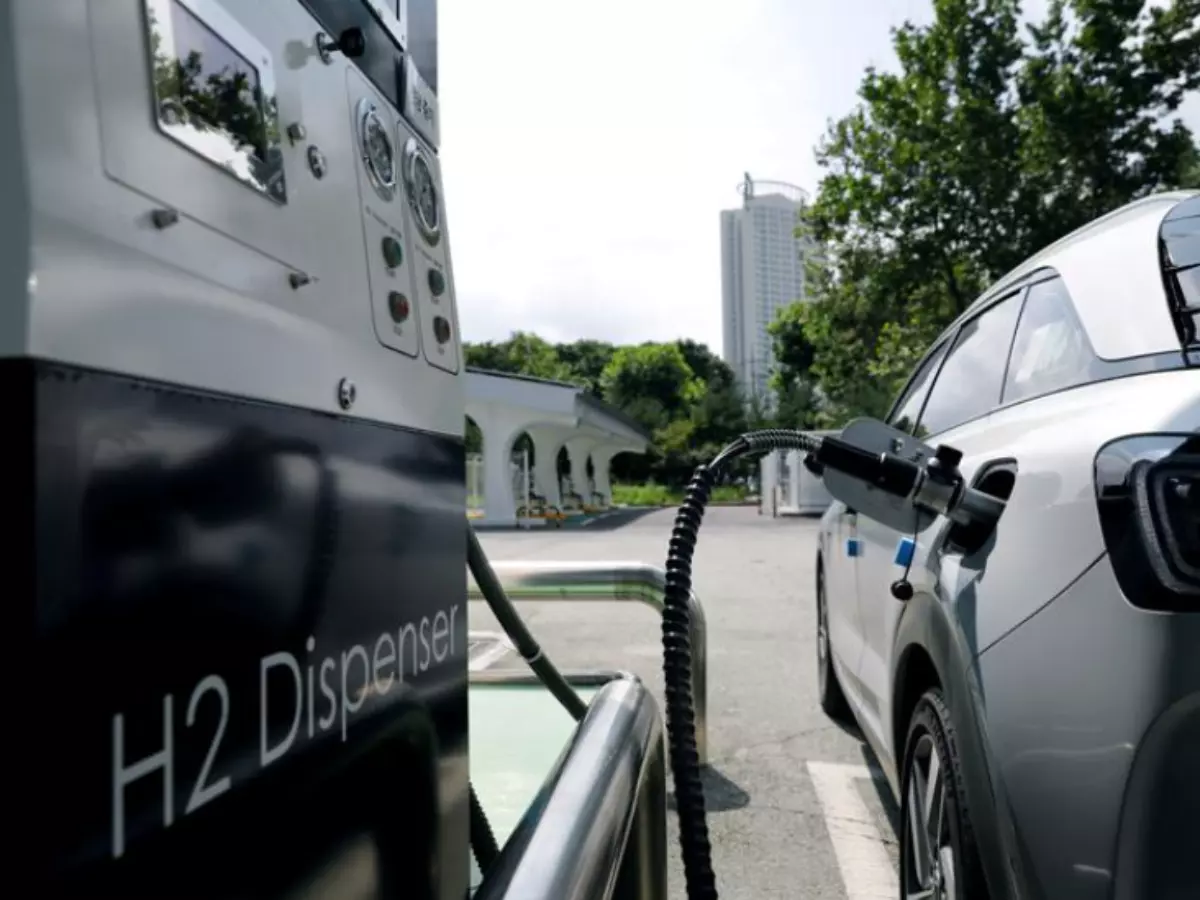Companies, Governments Work To Establish Hydrogen As The Fuel Of Future Growth
Hydrogen fuel cells essentially use hydrogen as a fuel to operate a fuel cell system that eventually generates electricity to run the car. The byproduct in this case is only heat and water and hence the mechanism ranks as one of the cleanest ways to move vehicles. Hyundai Motor Group for instance has signed an investment pact with the government of Chinas southern province of Guangdong.

Electric vehicles have taken precedence in the future plans of almost all the automakers in the world. The choice of attaining that electricity for power, however, differs from one to the other.
 Courtesy: BloomEnergy
Courtesy: BloomEnergy
While most are opting for batteries that can be recharged through a stationary charger, some automakers lean towards hydrogen fuel cells, another interesting prospect of obtaining clean energy.
Hydrogen fuel cells essentially use hydrogen as a fuel to operate a fuel cell system that eventually generates electricity to run the car. The byproduct in this case is only heat and water and hence the mechanism ranks as one of the cleanest ways to move vehicles.
They have a huge benefit over regular battery electric vehicles too. Hydrogen can be pumped into the car¡¯s system as a fuel, just like petrol and diesel. With that, it becomes a matter of minutes to refuel the car. Battery EVs require hours of charging instead.
It is no wonder that hydrogen is hence being considered as the fuel of the future. Various stakeholders are now working to establish the same in several regions.
Hyundai Motor Group, for instance, has signed an investment pact with the government of China¡¯s southern province of Guangdong. Under the pact, the South Korean automaker will build its first overseas fuel cell system production plant in China.
Construction for the facility will begin in March this year, with its completion being aimed for the second half of 2022. Once finished, the facility in Guangzhou city will have an annual capacity of 6,500 fuel cell systems.
¡°The Guangzhou plant will leverage the group¡¯s extensive expertise in fuel cell system production to secure a technological leadership position in China¡¯s rapidly developing hydrogen industry,¡± it said in a statement.
 Hydrogen fuel station (Representative Image: Reuters)
Hydrogen fuel station (Representative Image: Reuters)
Hyundai did not disclose the investment amount but confirmed that it would work with Chinese firms to participate in Guangdong¡¯s hydrogen-related projects. The move comes after the carmaker promised to launch a sub-brand HTWO dedicated to hydrogen fuel cell systems.
Toyota is another car maker that excels in hydrogen fuel cell systems. Working along with the government of Japan, the conglomerate has earmarked billions of dollars to fund hydrogen-related projects in the country to help meet its zero net carbon emissions goal by 2050.
Such hydrogen-related projects are being undertaken in several economies including Japan and Australia. Once setup, such projects are meant to boost the adoption of clean energy products in a region, thus helping governments reach their carbon-neutrality goals.
